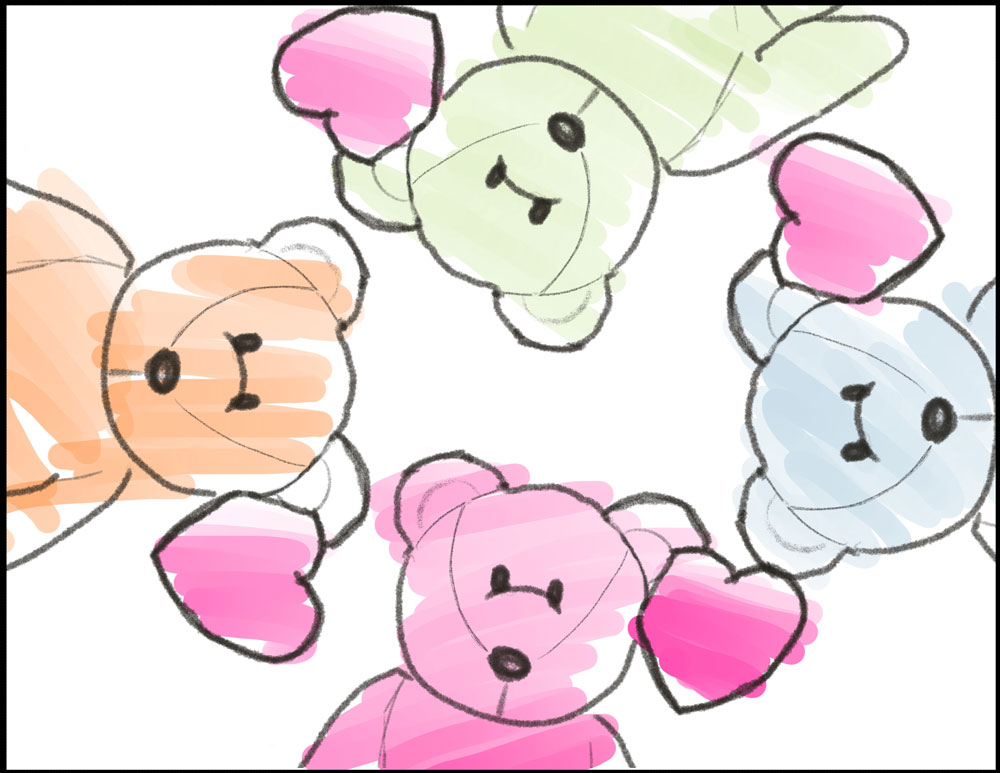
Original Art by the Editor - All Rights Reserved
Introduction To The Great Beanie Baby Marketing Strategy
The late 1990s saw the emergence of a seemingly simple toy capturing the hearts and wallets of people worldwide: Beanie Babies. In the book “The Great Beanie Baby Bubble” by Zac Bissonnette, we dive deep into the world of Beanie Baby marketing. This blog explores the overall Beanie Baby Marketing Strategy that fueled the meteoric rise of Beanie Babies and offers valuable lessons for today’s marketers.
Limited Supply as a Driving Force
Ty Warner, the creator of Beanie Babies, masterfully leveraged the concept of scarcity. By intentionally limiting the production of specific Beanie Babies, Warner transformed them into sought-after collector’s items. Collectors engaged in frenzied hunts to find rare Beanie Babies, creating immense demand.
The formula was as follows:
Limited Amounts of Product in a lot of Small Mom and Pop Shops
VS
Large Amounts of product in only a couple of Large Corporate Shops

The Art of the Beanie Baby Retirement
Warner frequently “retired” certain Beanie Babies, often without prior notice. In the beginning, this wasn’t even an intentional strategy. He was just perfecting his product, in the act of making the perfect product. But this strategy heightened collectors’ excitement and encouraged buying in anticipation of a retirement announcement, turning collecting into a thrilling treasure hunt.
Innovative Pricing Strategy
Beanie Babies were initially priced at a modest $5. However, some Beanie Babies were sold at higher prices, emphasizing the importance of pricing strategies that consider perceived value and rarity.
Personal Engagement at Trade Shows
In contrast to conventional marketing, Warner took a hands-on approach by attending trade shows and conventions. This personal touch allowed him to connect with collectors directly, fostering a tight-knit community of enthusiasts.

Playing on Emotion
The emotional connection to Beanie Babies was a crucial element in their marketing. Each Beanie Baby had a unique name, personality, and backstory, evoking feelings of attachment among collectors.
The Hangtags
Beanie Babies often came in individualized packaging, featuring their names, birth dates, and a story or poem. This added to the sense of collecting and reinforced the emotional connection. This was a small, but extremely important product detail. It really gave that personal & sentimental touch to the product.
Media Attention and Word of Mouth
Media outlets and word-of-mouth played significant roles in Beanie Baby marketing. News stories about the high prices fetched by rare Beanie Babies fueled the frenzy, while collectors shared stories of their finds, contributing to the toy’s allure.

Quality Assurance
Ty Warner was known for his obsession with perfection, rejecting any Beanie Baby that didn’t meet his high standards. This commitment to quality set Beanie Babies apart in the market.
Community Building
Through collector clubs, newsletters, and events, Ty Warner cultivated a sense of community among Beanie Baby enthusiasts. This community-building strategy encouraged brand loyalty.
The Burst of the Bubble
The Beanie Baby bubble eventually burst as oversupply and waning collector interest led to a market crash. This serves as a vital lesson in the need for sustainable business models and responsible marketing.
Conclusion
The great Beanie Baby Marketing Strategy phenomenon is a masterclass in marketing. Ty Warner’s unconventional strategies, from scarcity to personal engagement and emotional connection, created a global sensation. Yet, it also teaches us the perils of speculative markets and the importance of adaptability in sustaining success. As we reflect on the Beanie Baby bubble, we can glean valuable marketing insights that remain relevant in today’s ever-evolving business landscape.
I hope you enjoyed this blog, please let me know in the comments below if you have any questions and if this helped you at all in your marketing efforts, thank you!



